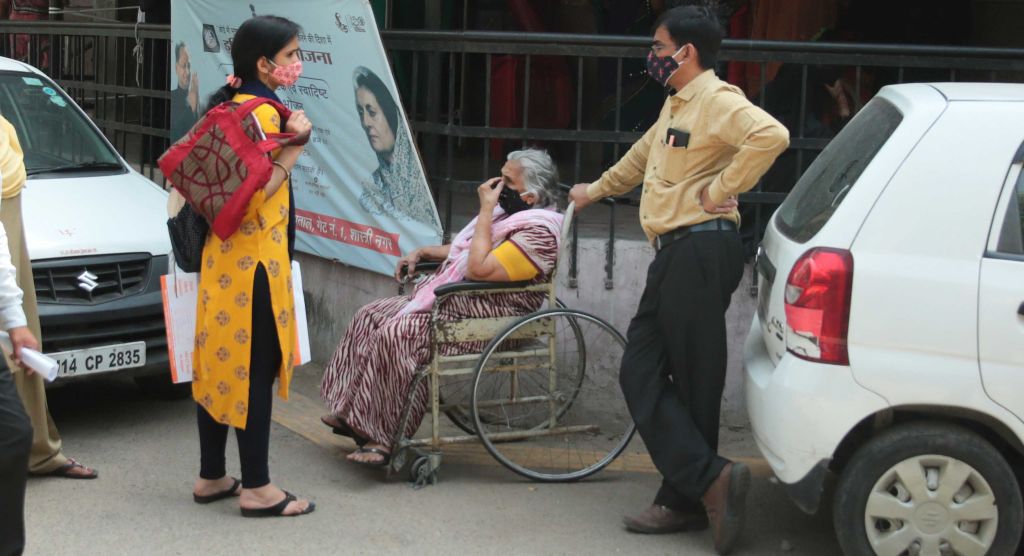Akanksha*, 22, a final-year law student from Tamil Nadu, says she was always “on call” at home while taking care of her father for two months while he recovered from COVID-19 in June and July last year. At the same time, she spent four hours each day doing university work and another two to four hours at her job.
“I was working with lawyers for experience and I had to be on call to do research during sessions. And I was always on call at home,” she says. “I would wake up at 4 a.m. just so I could get two hours of work done before my family woke up.”
Her mother has multiple health conditions so Akanksha had to take care of the household and her sick father. Due to her family obligations, she missed opportunities to network with professors and supervisors—something which can be make or break for a law career.
“When I was on call both at home and at work, and their needs would coincide, I had to prioritize my family,” she says.
Caregiving work disproportionately falls on women and forms a large part of the 350 minutes of unpaid work women do daily (compared to 50 minutes men do on average), according to a report by the World Economic Forum. Young women are now facing the responsibility of having to care for sick family members and managing the household, along with juggling their education.
“I had to wake up at 6 in the morning to get started on chores,” says Gauri Sharma, 23, a Masters of Psychology student living in Haryana. “Not only did I need to cook all [of] the meals, clean, manage medications for my parents and take my mother to doctor’s appointments, but I also had to make sure to attend my online classes.”
With both her parents sick with COVID-19, Gauri, an only child, had to do all of the chores.
“There were times when I had to log into class and put my earphones on to listen as I mopped the house. I once fell unconscious due to the stress. I had to do it all on my own,” she says.
Both women say they were relieved when both of their sick fathers were hospitalized.
Aditi*, 21, a final year undergraduate Political Science student from Uttar Pradesh gave up on her education for the time-being.
“I spent the day making calls trying to find an oxygen cylinder for my grandmother. I have no energy or mental space to think about my education at the moment. Five of my family members are sick, and they are my priority,” she says.
She is now considering having to trade in higher education plans to hunt for a job.
(*Akanksha and Aditi asked to use pseudonyms, saying their families did not know they were speaking to media)



